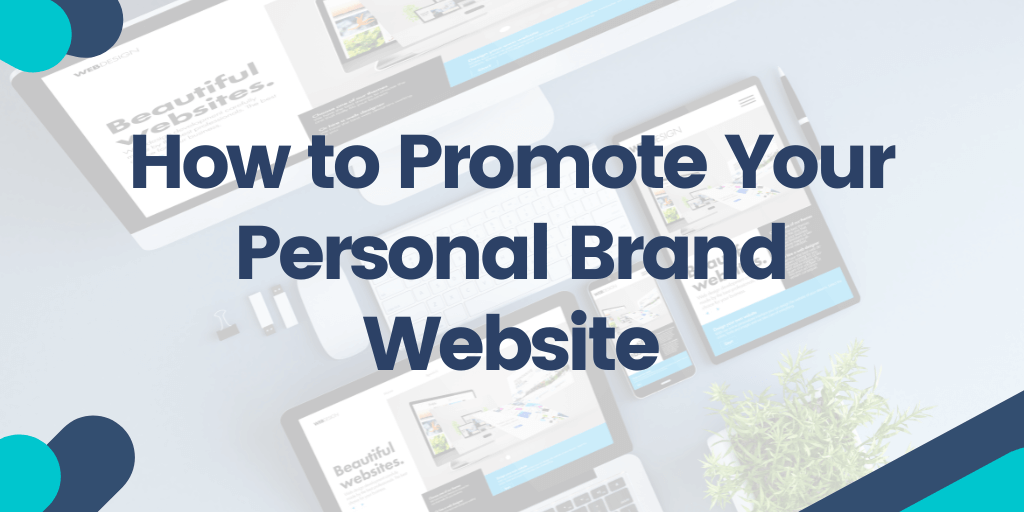Personal branding is a vital part of digital marketing, and only your efforts in this regard can increase the chances of success. Since you must compete with many others in your niche, use all the tools and resources available to gain an edge. For example, incorporating SEO for personal website development is the best tactic to strengthen your brand’s position and attract the target audience.
Still, SEO is a multifaceted process, and you should approach personal branding thoroughly. So, how do you build a reputation and establish trust? Which practices do you use to boost your personal brand? This article is a comprehensive guide to help you take the right steps.
Personal Brand and SEO: How Are They Connected?
If you wonder what kind of connection there could be between personal brand and SEO, you’d be surprised. Almost all online journeys begin with a search engine. This means people search for other people, brands, prospective employees, or partners every second. According to the stats, websites report that 53% of their traffic comes from organic searches, which means that ignoring SEO could be a career suicide. So, you want to control what the search engine shows to people, at least as much as you can.
Don’t leave your brand reputation to chance: show your best side, attract potential leads, and win customers' trust. Some businesses buy guest posts from reputable sources like LinksManagement to enhance their search rankings while controlling their narrative. This strategy is a win, any way you look at it. Still wondering why your business needs SEO? It's all about attracting the right traffic, improving your conversions, and enhancing your personal brand credibility. That's exactly what SEO can do for you.
How to Promote Your Personal Brand Through SEO
A strong personal brand is a core ingredient in the long-term success of a business. This is why marketers put so much effort into discovering how to build a strong personal brand to enhance lead generation. Still, the task can be overwhelming, so here are some tactics you can apply right away:
#1 Build an Effective Personal Branding Keywords Strategy
Keywords to SEO are what peanut butter is to a jelly sandwich - there is never one without the other. To build a strong personal brand presence through SEO, you should start with keyword research and uncover the phrases and terms your target audience will use to find you and others in your niche.
Then, use personal branding keywords in your content to improve online visibility. But your work does not end there. Keep publishing quality content that incorporates those keywords regularly. You must know exactly which types of content (videos, infographics, how-tos, etc.) drive the most traffic to your website so you don’t waste money, time, and resources on content that won’t give you the desired result.
Taking a cue from pros like Neil Patel, who knows how to use keywords that really connect with his audience, it's all about doing thorough keyword research. He figures out the phrases and terms that his audience is likely to use when searching, like more traffic, Google Ads, marketing and so on.
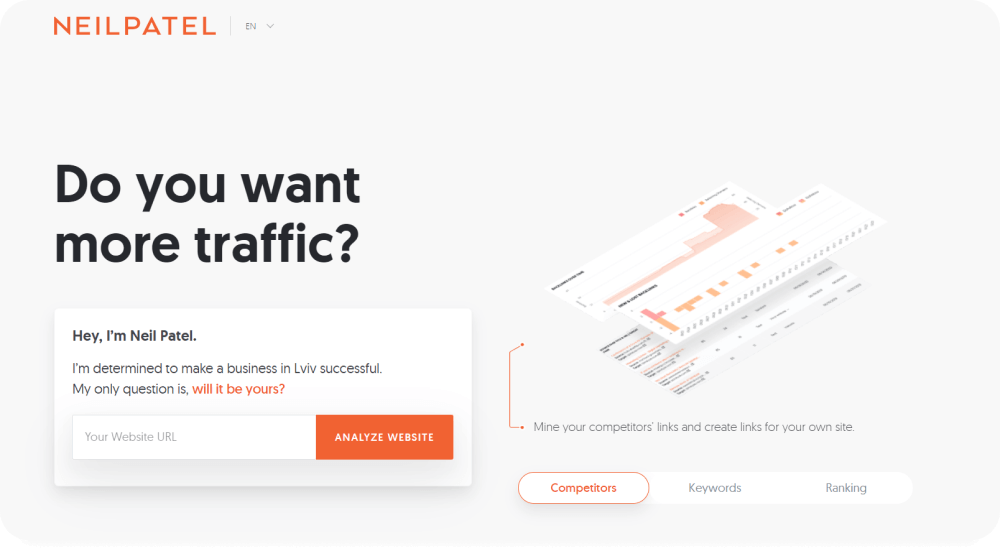
#2 Optimize Your Social Media Profiles
Believe it or not, social media is a big part of branding and SEO, though not directly. If you check out the social media profile of your future date, you are doing precisely what your target audience would do before buying from you. So, go through your LinkedIn, Facebook, X (formerly Twitter), Instagram accounts, etc, and see what you can do to optimize them.
Some options are incorporating keywords into your bio and posts, using quality pictures, etc. You also need to use personal logos for each platform, which means learning how to leverage optimized pages with links to boost your web visibility and attract the audience. Also, use social media to promote your blog content and increase direct traffic to your website.
Look at MobileMonkey's founder, Larry Kim. His LinkedIn, Facebook, X, Instagram, and other accounts, he optimized them for maximum impact. Added appropriate keywords to the bio and posts, created a cohesive narrative which defines the individual brand by incorporating top quality images.
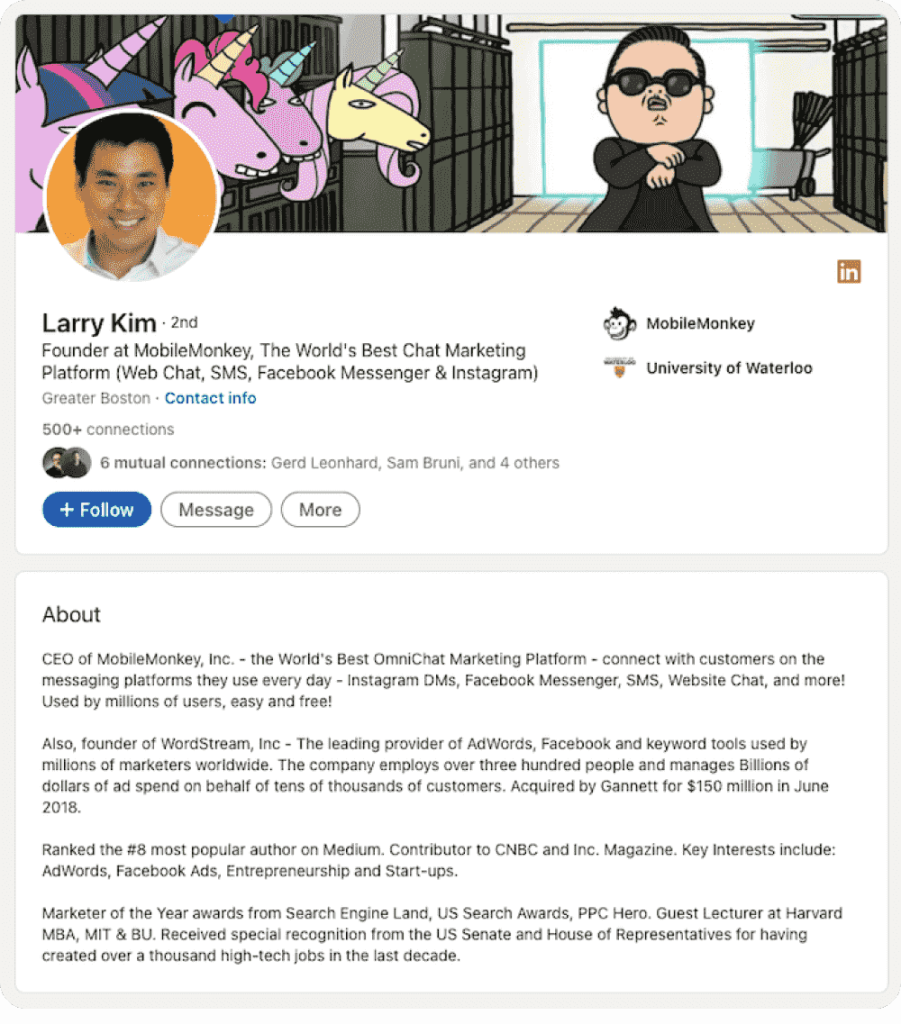
#3 Build a Strong Natural Backlink Profile
Here’s the thing: your natural backlink profile is worth almost as much attention as your content strategy (or even more). Just like you shape the image of your potential date based on what your mutual acquaintances say about them, your target audience will trust your brand if other websites vouch for you. That’s exactly what backlinks do. The more inbound links you get from relevant sites, the higher your credibility and search ranking, which means more traffic.
So, if you want to improve your personal brand through SEO, invest in quality link-building. There are many ways to do this, from guest posting to hiring premium link building services that focus on securing high-authority backlinks. The good news is that the strategy works even for niches like mobile app development and other obscure industries as long as you continue to put in the effort. The important thing is to focus on non-spammy tactics that yield good results. This is easier said than done, so don’t hesitate to ask for help if you ever get stuck.
A fine example is the Stephen King site, a vast network of backlinks that attest to the effectiveness of an good link building strategy.

#4 Enhance the Performance of Your Web Pages
The secret to improving your personal brand through SEO is being able to understand what your customers need and, at the same time, provide the best experience for them. Beyond the content, design, and backlinks, other factors affecting your efforts are how fast your website loads, if it’s mobile-friendly, and even how easily one can navigate from one page to another. For those just starting out, learning link building for beginners is essential, as acquiring quality backlinks from a trusted backlink provider helps improve your site’s authority, search rankings, and overall visibility.
This is why you should keep the on-page and off-page factors aspects of SEO in mind, as they are all different sides of the same coin. Luckily, all the issues impacting your efforts can be quickly detected and fixed. And you don’t even need an expensive tool to do that. A simple SEO tool like Google Search Console will be up to the task.
Check Gary Vaynerchuk website main SEO results: high domain rating, traffic and backlinks.
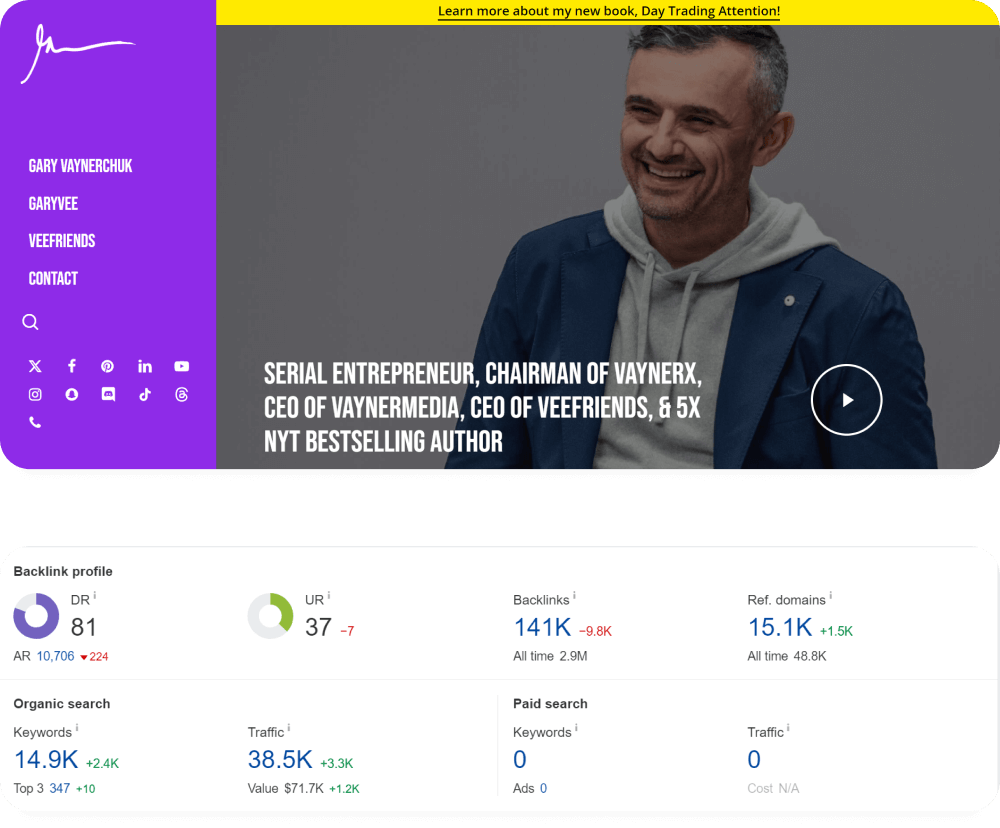
#5 Stay on Top of Negative Publicity Using Effective SEO Strategies
Despite your best efforts, you might get the kind of attention that can break a weak brand (but not you). When you trend for the wrong reason or appear high in search results for harmful words, it’s called negative SEO. The good news is that you can manage it effectively and, in some cases, even use it to your advantage. This is what reputation management is all about.
For example, you can find the keywords people use to find articles showing you in a bad light and then use them to create your own content to answer crucial questions and share your side of the story. You could put out a public statement that quotes the damaging report and then give an accurate narrative of the situation.
#6 Track Your Brand Performance
When it comes to SEO for a personal website, your work is not done in one single session. You should continue monitoring your brand’s performance in search engine results and decide how to improve it. Use any SEO tool for this purpose. The more you keep an eye on things like this, the easier it is to adjust your strategy.
#7 Use Local SEO Strategies to Your Advantage
Don't forget to take local search engine optimization into account when developing your own brand. Optimization of Local Searches is essential if you have an established presence or are catering to a specific geographical area. Provide the information about your company's names, addresses, and telephone numbers on all internet platforms. Make sure satisfied clients leave good reviews, as they have a major effect on regional rankings for search engine optimization.
Check out the website of London photographer Karolina Heller, whose Google My Business profile is an important part of her online presents. With numerous positive reviews, her profile serves as a compelling example of how a well-optimized local SEO strategy can enhance your brand's visibility and credibility.

#8 Use the Power of the Video Content
The content of videos is king in the digital age. Create exciting videos showing your knowledge and personality to tap into the popularity of platforms such as YouTube. You must also have videos that complement your content and draw more attention to your audience. To enhance the visibility of such videos through search engines, optimize video titles, descriptions, and tags with relevant keywords.
You can learn from Alex Cattoni's YouTube channel approach by creating engaging video descriptions, including a link to social media profiles, and using strategic hashtags that will ultimately boost efforts in search engine optimization.
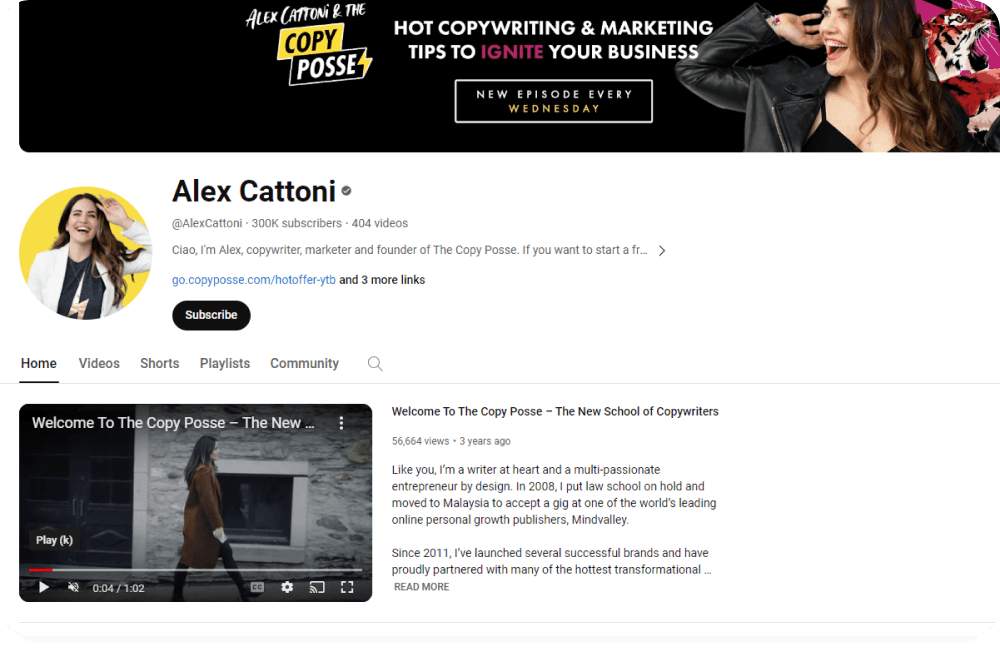
#9 Consider Mobile Optimization First
Google considers the responsiveness of your web pages to be an important factor for ranking, so you must ensure that they are responsive and provide a good user experience on mobile phones and tablets. This approach is not only more effective in terms of SEO, but also takes account of the preferences of a smartphone audience.
The website of Dr. Mikhail Varshavski, commonly known by the Internet name "Dr Mike," shows an excellent example of this strategy. For mobile screens, his site demonstrates excellent optimization that addresses the needs of the smartphones audience and contributes to a positive user experience.
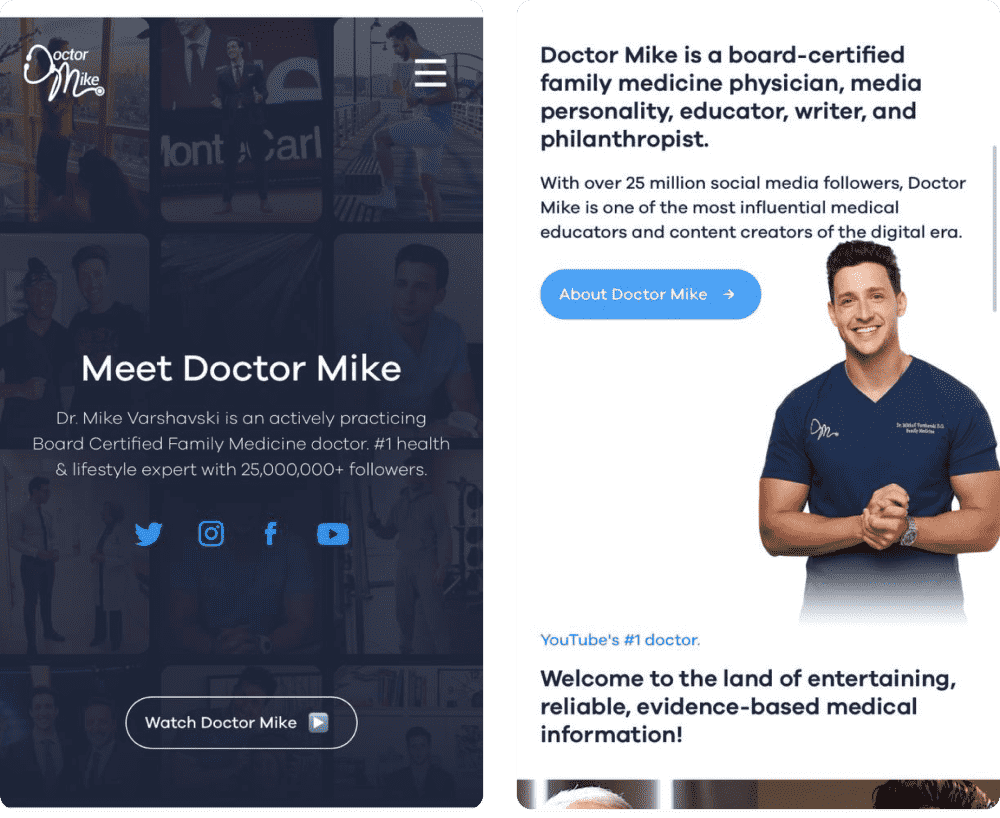
#11 Optimize Images for Cross-Device Adaptability
Ensuring that all of the images you use on your website are suitable for different devices is also a part of SEO strategies to promote your private brand online. The image quality and visual appeal should be maintained over various screen sizes. Use responsive design principles to ensure that your brand images, like logos or promotionals, are displayed with maximum clarity on desktops and smartphones
#12 Minimize Error Redirects on Your Website
To avoid annoying your audiences, reduce the number of errors that are rerouting on your website. If you want to ensure that all links are not broken, you should regularly examine them and remove any problems without delay. A good navigation experience has a positive impact on the ranking of your website in search engine results, not only improving user satisfaction.
#13 Craft Strategic Calls-to-Action (CTAs)
Your personal brand's conversion rate may be significantly influenced by the strategic placement and design of CTAs. Whether it means signing up for a newsletter, downloading some content, or buying something, clearly define the action you want your audience to take. To guide your visitors in a seamless flow into the conversion funnel, use persuasive languages, contrast colors and strategic placements of CTAs across your website.
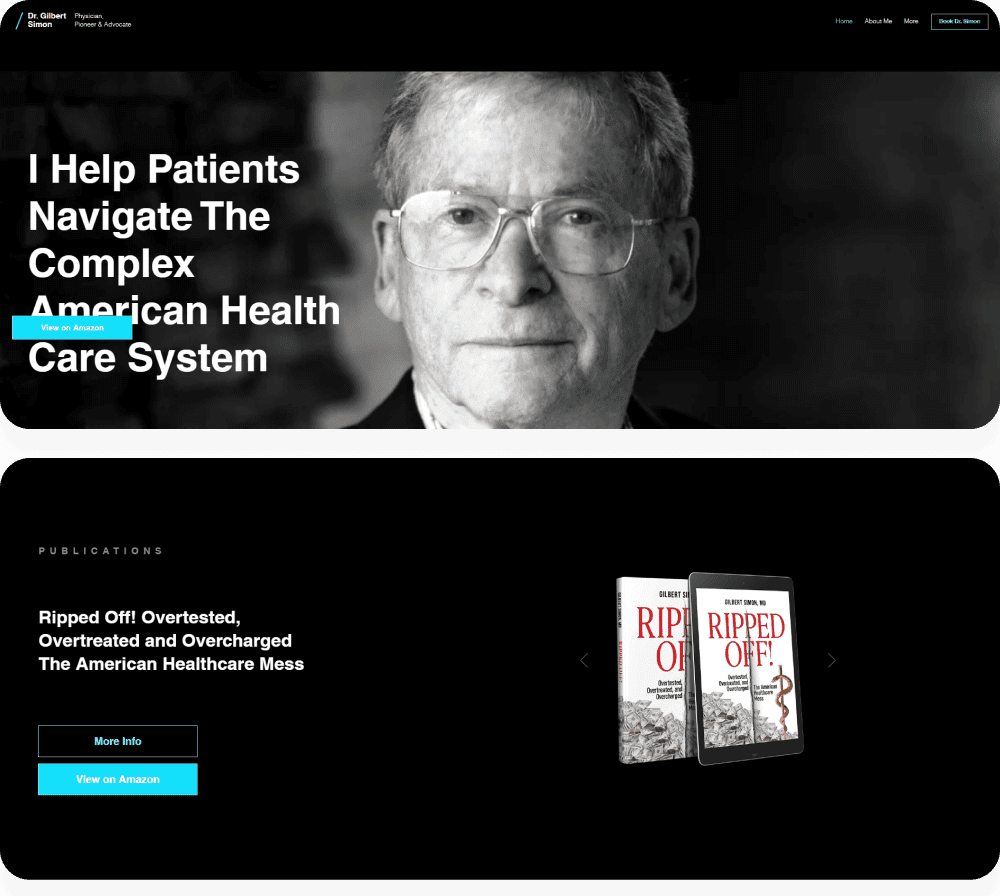
#14 Keep Consistency in Design and UI
The key to strengthening your personal brand identity is consistency of design. Make sure that the style is the same across all your websites, social media accounts, email signatures, and other online platforms. Additionally, prioritize user experience (UX) by ensuring intuitive navigation, easy accessibility, and a visually pleasing layout.
The blogger Madeleine Olivia used three primary colors for her branding in the example below. She's using those colors on her website, as well as all the other platforms of communication. Her background images, Instagram highlights, website buttons, logos, and eBook covers are also on-brand. On every social networking site, the profile photo is identical.
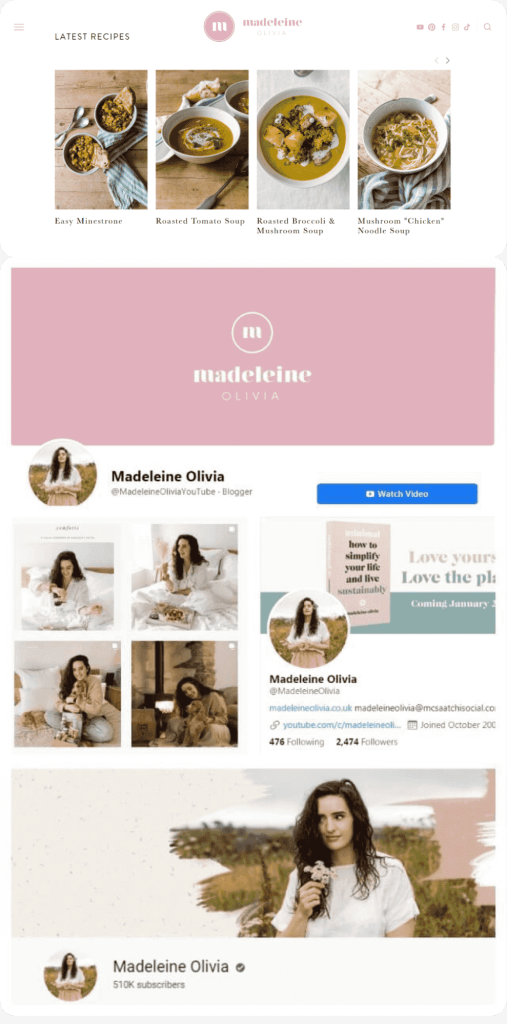
#15 Increase Website Loading Speed
The main influence on user experience and search engine ranking of websites is the loading speed. Compressing images, leveraging browser caches, and avoiding plugins will help you optimize the personal brand web pages. A faster website also signals to search engines that your site provides a positive user experience, which contributes to improved search engine optimization.
Look at the example from the website of the fantastic choreographer JR Taylor, who experiences pretty long website loading times that can impact the SEO results.
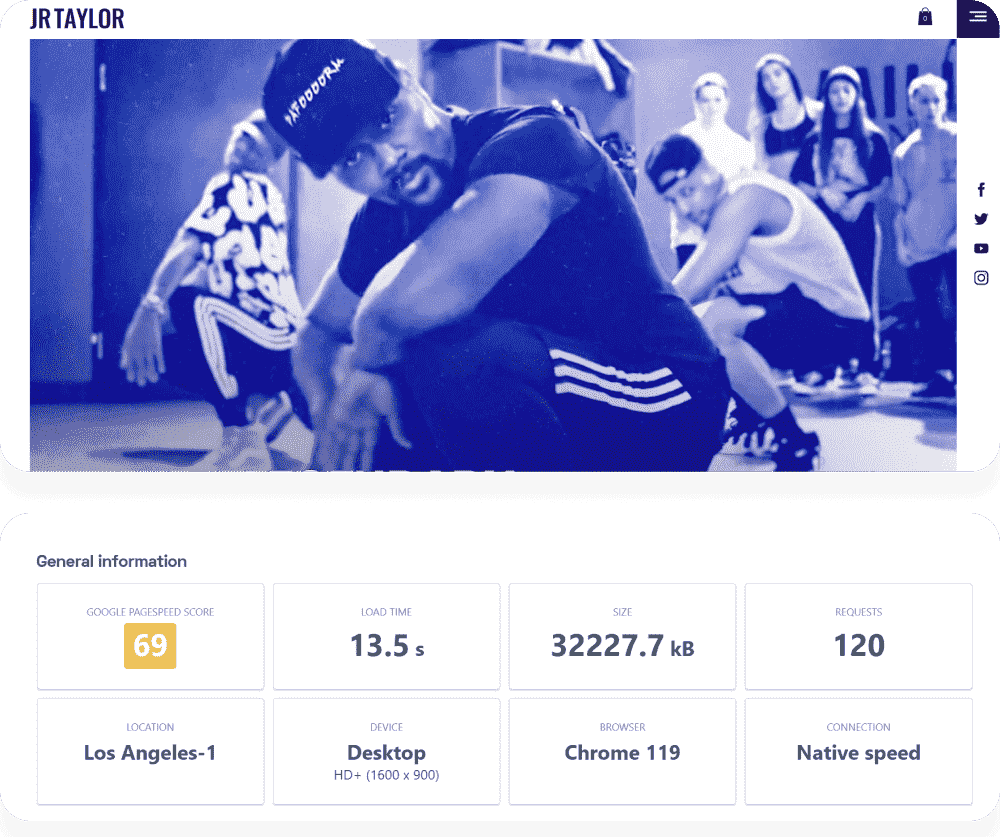
Conclusion
When you decide to use SEO for personal website development to enhance your brand presence, you must be ready to work hard. It takes commitment and consistency to get results. Still, the reputation of your brand is worth every single effort.


